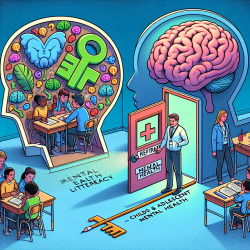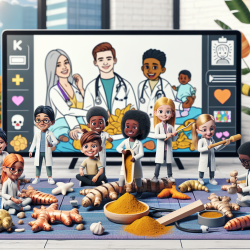Community preceptors play a pivotal role in medical education by providing hands-on training to medical students in real-world settings. However, the effectiveness of these educators often hinges on their preparedness and access to faculty development (FD) programs. A recent narrative review titled "Faculty Development for Community Preceptors: a Narrative Review of the Literature" sheds light on the current state of FD programs and offers insights into improving the teaching skills of community preceptors.
The Importance of Faculty Development
Faculty development is crucial for equipping community preceptors with the necessary skills to provide high-quality educational experiences. With more than half of medical schools utilizing community settings for training, it is imperative that these educators are well-prepared. Unfortunately, many preceptors report feeling unprepared and stressed due to a lack of structured FD programs.
Key Findings from the Narrative Review
The review analyzed 21 studies from a pool of 6308 articles, focusing on FD programs designed specifically for community preceptors. Here are some key findings:
- Needs Assessment: Sixty-seven percent of the programs conducted a needs assessment to tailor their content effectively.
- Program Content: The primary focus was on enhancing teaching skills, including techniques like the "one-minute-preceptor" model and promoting a positive learning environment.
- Diverse Delivery Methods: Workshops were commonly used, supplemented by online modules, role-play, and instructional videos.
- CME Credits: Five programs offered Continuing Medical Education (CME) credits as an incentive for participation.
Strategies for Effective Faculty Development
The review highlights several strategies that can enhance the effectiveness of FD programs:
- Diverse Instructional Methods: Combining workshops with online resources and role-play can cater to different learning preferences and schedules.
- Feedback Mechanisms: Providing opportunities for direct observation and feedback can significantly improve teaching skills.
- Cultural Competency Training: Integrating cultural competency into FD programs helps preceptors address diverse patient needs effectively.
The Role of Technology in Faculty Development
The integration of technology in FD programs offers flexibility and accessibility. Online modules, podcasts, and video conferencing are valuable tools that allow preceptors to learn at their own pace and convenience. These methods also facilitate engagement with geographically dispersed educators.
The Path Forward: Encouraging Further Research
The narrative review underscores the need for further research into the long-term impact of FD programs on teaching effectiveness and student learning outcomes. Future studies should explore how these programs influence the professional identity formation of community preceptors and their integration into the broader medical educator community.
If you are a practitioner looking to improve your teaching skills or develop an FD program, consider exploring these findings further. Engaging with current research can provide valuable insights into best practices and innovative approaches.
Faculty Development for Community Preceptors: a Narrative Review of the Literature










